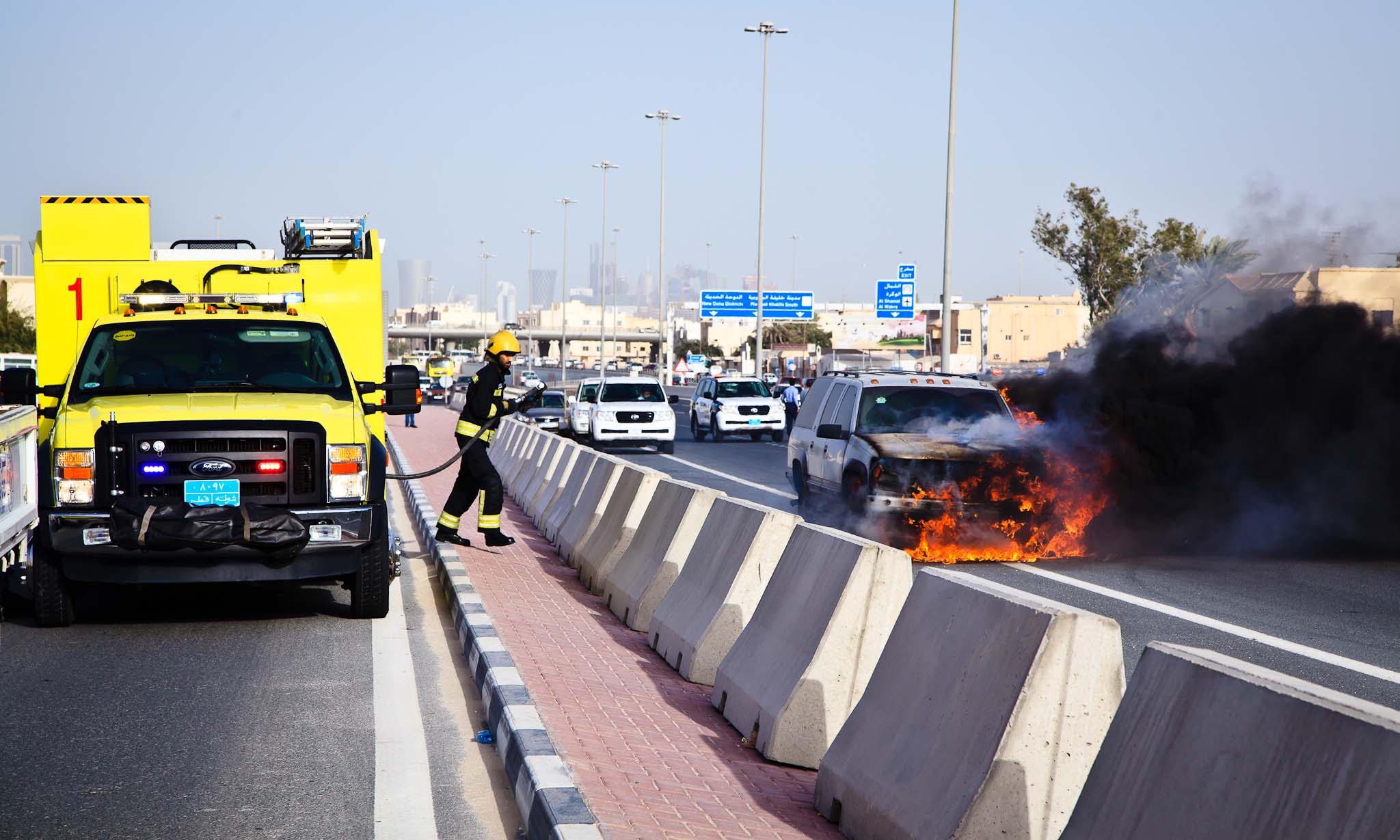
Qatar’s Emir has approved a new law aimed at accelerating the country’s emergency response to natural disasters and other catastrophic incidents, as well as tightening building safety requirements, according to the Qatar News Agency (QNA).
One of the major changes contained in Law No. 25 for the year 2015 involves shifting responsibilities from the Ministry of Interior to a newly established Civil Defense Council, local media reports state.
Under the previous legislation, Law No. 13 of 1997, it was up to the Minister of Interior, who needed approval from the government cabinet, to declare a state of emergency.

This responsibility now falls to the new council, which will also be in charge of coordinating and assigning duties to various ministries and authorities to ensure the country is prepared to respond to disasters.
It will also take precautionary measures, such as establishing emergency shelters, according to the text of the law published by Al Sharq.
The council will also provide information so that emergency safety techniques can be taught in schools as well as religious and military institutions.
Finally, it will be responsible for setting the country’s fire fighting and civil defense policies.
Previously, this fell to the Ministry of Interior’s General Directorate of Civil Defense, which will continue to oversee day-to-day operations under the new legislation.
Building inspections
The law also mandates that Civil Defense approve building fire detection systems.
Licenses for commercial, industrial and general stores will not be granted until the properties are inspected and deemed to have a valid fire detection system that must be regularly maintained, according to articles four and six of the new law.

The old law did not explicitly connect a business license to Civil Defense inspection, nor mention the need to regularly test fire alarms.
Additionally, the designs of all new government buildings must be submitted to the MOI’s General Directorate of Civil Defense, which will scrutinize and approve fire detection system plans.
Following the Emir’s approval, the interior minister must now issue the necessary decrees to implement the new provisions. Until then, the old law remains valid.
Companies will be given a six-month grace period to sort out their affairs from the date the law is implemented, according to article 30.
Fires in Qatar
There were 1,158 fires, or an average of more than three a day, in Qatar in 2013, the most recent year for which statistics are available.
More than half of all fires were in homes or vehicles, according to the Ministry of Development Planning and Statistics.
While the cause of most fires is never officially determined, many are reported to break out due to malfunctions in air conditioning units or under-construction buildings or in warehouses and storage facilities.

For example, the newly-opened Fire Station art hub had two outbreaks during its renovation from a former Civil Defense headquarters last year.
And earlier this week, a prominent Filipina community member was killed and her husband and daughter critically injured in a house fire.
Also, earlier this year, a fire broke out on the roof of a tower being built in the Dafna/West Bay area. It continued for several hours before it was brought under control.
The last time Qatar revised its Civil Defense policies was after one of the most deadly fires in Qatar’s modern history in 2012, when 19 people were killed at Villaggio mall.
In the aftermath of that tragedy, authorities examined other shopping centers and public buildings to ensure they met basic safety regulations.
Additionally, Qatar’s Civil Defense also instructed all institutions – including private and public companies, hotels, apartment buildings and restaurants – to step up their fire prevention and safety measures or face immediate closure, following spot-checks.
Thoughts?







